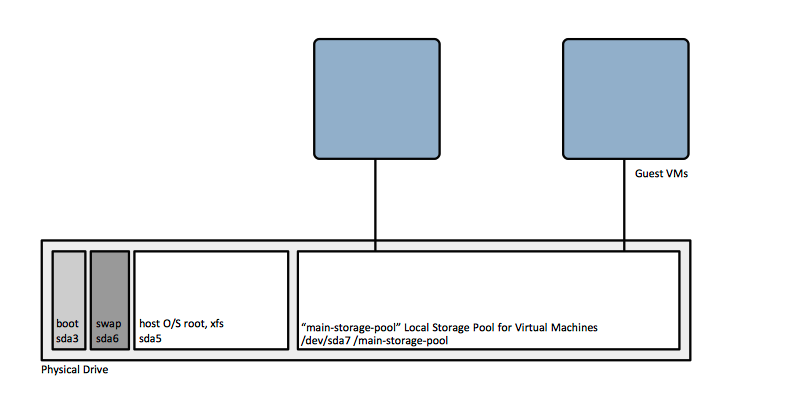RHEL 7 Virtualization Host Installation: Difference between revisions
| Line 19: | Line 19: | ||
{{Internal|Dell Server Install OS with LifeCycle Controller|OS Installation with LifeCycle Controller}} | {{Internal|Dell Server Install OS with LifeCycle Controller|OS Installation with LifeCycle Controller}} | ||
The procedure will update the Dell firmware and drivers and then will pass control to the native O/S installer, that should be driven as described below. Note that '''the only areas in which the virtualization host installation procedure differs from a regular server installation procedure is''' [[#Storage_Provisioning|Storage Provisioning]] '''and''' [[#Virtualization_Host-Specific_Configuration|Virtualization Host-Specific Configuration]]. | The procedure will update the Dell firmware and drivers and then will pass control to the native O/S installer, that should be driven as described below. Note that '''the only areas in which the virtualization host installation procedure differs from a regular server installation procedure is''' [[#Storage_Provisioning|Storage Provisioning]] '''and''' [[#Virtualization_Host-Specific_Configuration|Virtualization Host-Specific Configuration]]. In consequence: | ||
* | * first configure storage, follow the [[#Storage_Provisioning|Storage Provisioning]] instructions, below. | ||
* | * then execute the normal server installation procedure [[RHEL_7/Centos_7_Installation|RHEL 7 Installation]]. | ||
* | * then return to [[#Virtualization_Host-Specific_Configuration|Virtualization Host-Specific Configuration]]. | ||
=Storage Provisioning= | =Storage Provisioning= | ||
Revision as of 22:37, 24 June 2017
Internal
Relevance
- RHEL 7.3
Virtualization Host Prerequisites
The host requires minimum 6 GB of free disk space and minimum 2 GB or RAM.
Installed with 50 GB root partition, 4 GB RAM and 4 GB swap.
Virtualization Host Installation
if the virtualization host runs on a Dell server, install the host operating system following the procedure described here:
The procedure will update the Dell firmware and drivers and then will pass control to the native O/S installer, that should be driven as described below. Note that the only areas in which the virtualization host installation procedure differs from a regular server installation procedure is Storage Provisioning and Virtualization Host-Specific Configuration. In consequence:
- first configure storage, follow the Storage Provisioning instructions, below.
- then execute the normal server installation procedure RHEL 7 Installation.
- then return to Virtualization Host-Specific Configuration.
Storage Provisioning
Mount Point: /boot capacity 1024 MiB, standard partition xfs file system (/dev/sda3)
Mount Point: / capacity 50 GiB, standard partition xfs file system (/dev/sda5)
Mount Point: /swap capacity 4 GiB (/dev/sda6)
Leave the rest of the space unallocated, will create later the LVM pool.
Virtualization Host-Specific Configuration
Virtualization Packages
yum install -y qemu-kvm qemu-img libvirt virt-manager libguestfs-tools libvirt-client virt-install libguestfs-tools-c
